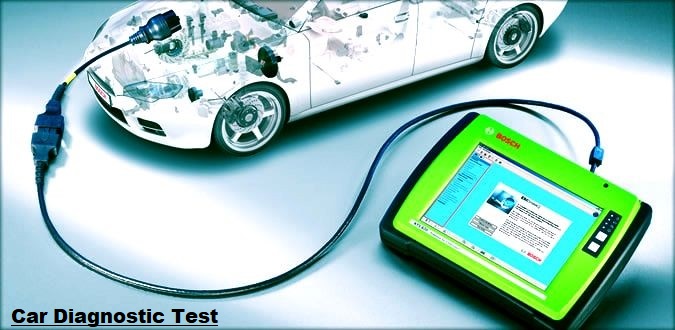A car diagnostic test is an essential tool for vehicle owners. If you’ve ever seen the check engine light on your dashboard, you may have wondered what’s wrong with your car. A diagnostic test is the best way to find out what’s happening. It uses advanced technology to connect to your car’s computer system and quickly identify any problems. This helps you stay on top of issues before they become serious and costly repairs. Regular diagnostic tests also help keep your car running smoothly, improving its lifespan and performance.

What Is a Car Diagnostic Test?
A car diagnostic test works similarly to a health check-up for your vehicle. Just like a doctor uses tools to assess your health, a mechanic uses a special diagnostic tool to examine your car’s systems. The tool connects to your car’s onboard computer, which tracks everything from the engine to the electrical systems. When something goes wrong, the system stores error codes that the diagnostic tool can read. These codes provide valuable insights into what needs to be fixed.
What Does a Car Diagnostic Test Check?
The diagnostic test examines several important areas of your car. It checks your engine’s health to see if there are any issues like misfiring, overheating, or poor fuel flow. It also looks at the transmission for any problems with shifting gears or overheating. The test checks the brakes to ensure that the pads aren’t worn down and the anti-lock braking system is functioning. Additionally, it examines the battery and electrical systems to identify any issues with charging or weak battery performance. The exhaust system is also checked for high emissions or blockages, which could affect the car’s efficiency and environmental impact.
What Can a Diagnostic Test Tell You?
A diagnostic test can provide several benefits. One of the most important is uncovering hidden problems that might not show immediate symptoms. These issues can be costly if left undetected but are much cheaper to repair when found early. Another benefit is improved fuel efficiency. If your car is consuming more fuel than usual, the diagnostic test can identify the cause, whether it’s a clogged filter or a faulty fuel system. Safety is also a priority. A diagnostic test can detect issues with your brakes or airbags, helping prevent potentially dangerous situations. Finally, it helps save money. By identifying and fixing small problems early on, you can avoid expensive repairs later.
How Is a Car Diagnostic Test Done?
The diagnostic test is a simple process. First, a mechanic will connect the diagnostic tool to your car’s OBD-II port, usually located under the dashboard. The tool scans the car’s computer system for error codes, which are then analyzed by the mechanic. The mechanic explains what the codes mean and suggests the necessary repairs. Based on the results, you can decide which repairs to make, depending on the severity of the issues.
Common Problems Found During a Diagnostic Test
Common problems that are often found during a diagnostic test include faulty sensors, such as oxygen or coolant temperature sensors, ignition issues like misfiring spark plugs or faulty coils, and battery problems, including weak batteries or alternators that don’t charge properly. Exhaust issues, like leaks or clogged components, can also be detected, as well as high emissions that may need attention.
When Should You Get a Diagnostic Test?
There are several times when you should consider getting a car diagnostic test. The most obvious sign is when the “check engine” light turns on. If your car feels off, such as making strange noises, having slower acceleration, or showing signs of reduced performance, it’s a good idea to run a diagnostic test. If you’re planning a long road trip, it’s wise to make sure your car is in good condition by running a diagnostic test beforehand. Even if everything seems fine, routine maintenance and regular tests can catch small issues before they become bigger problems.
DIY vs. Professional Diagnostic Tests
While DIY diagnostic tools are available, they have limitations. Basic OBD-II scanners can read the error codes but may not provide the full picture. Professional mechanics have access to more advanced equipment that can offer a detailed analysis of the issues and help with complex repairs that a DIY tool might miss. For an accurate diagnosis and effective repairs, professional diagnostic tests are the best option.
Why Are Diagnostic Tests Important?
Regular diagnostic tests are essential for your car’s maintenance. They help ensure safety by detecting problems that could cause accidents or breakdowns. By improving performance and fixing issues early, they can save you money in the long run. If you want to keep your car in great condition and avoid unexpected repair bills, schedule a diagnostic test regularly to stay ahead of any problems.
Conclusion
In conclusion, a car diagnostic test is a valuable tool for maintaining your vehicle’s health and performance. Whether it’s triggered by the “check engine” light or performed as part of routine maintenance, a diagnostic test helps identify issues early, improving safety and reducing repair costs. Regular tests will keep your car running efficiently and reliably, ensuring a smooth driving experience.


